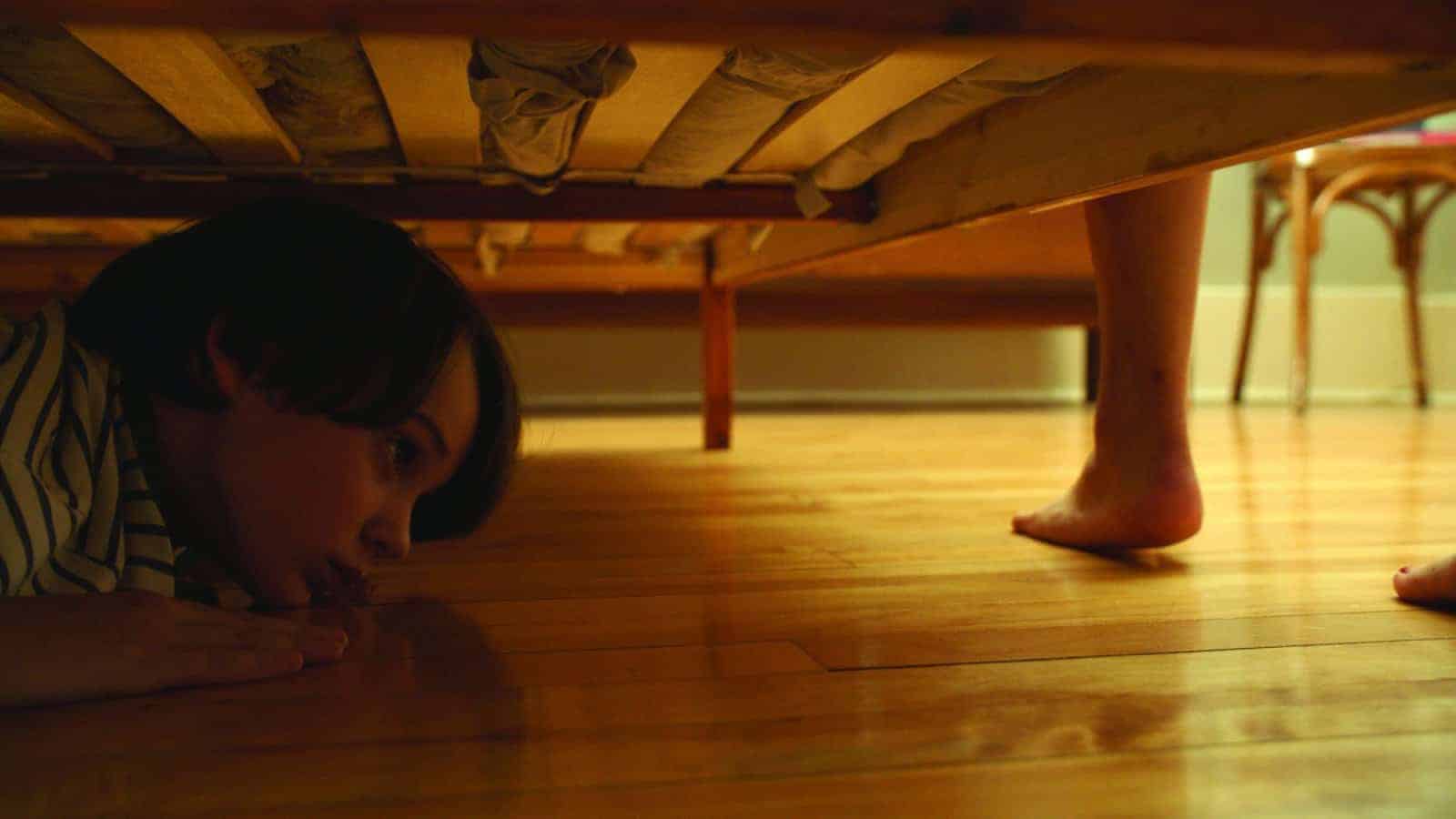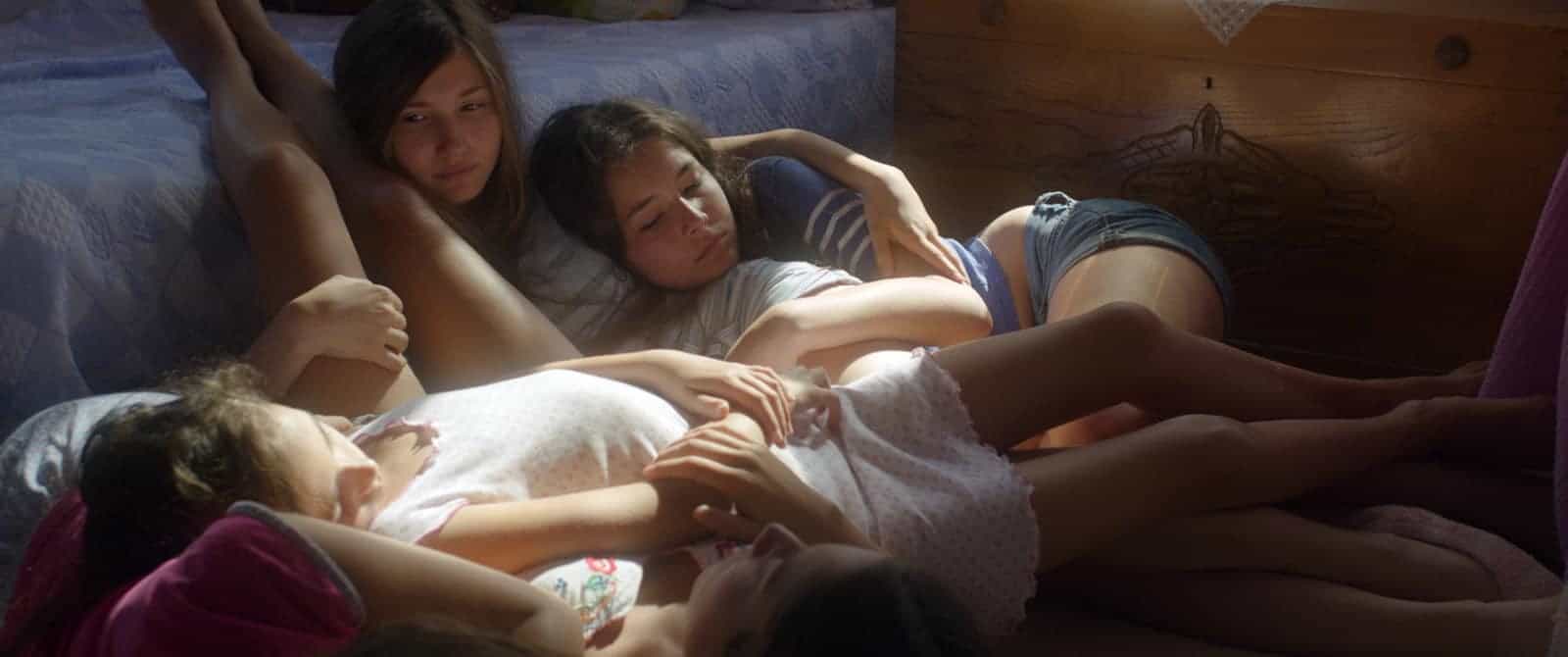Director Anne Zohra Berrached discusses 24 Weeks, her Berlinale Competition film about a couple who must decide whether to have a late abortion when they discover their child will have Down Syndrome. She explores the challenges of the subject matter and why she wanted non-professional actors for some of the parts.

Weltvertrieb: Beta Cinema
One of the only two female-directed films to screen in Competition at the Berlinale this year, 24 Weeks, addresses the issue of late abortion from a realistic German perspective. The title refers to the gestation period after which a fetus can be born and survive outside of its mother’s womb. This is why aborting a baby after 24 weeks, late abortion, is controversial. Some people believe that at this stage, the fetus has become a human being and should be granted human rights. In Germany, late abortion is legal for women whose child will be born with Down’s Syndrome, and 90% of German women in this situation choose to have the abortion.
In 24 Weeks, Astrid (Julia Jentsch) and her husband Markus (Bjarne Mädel) learn that their child will have Down Syndrome when she is already six months pregnant. Despite the potential to exploit the difficult subject matter for maximum dramatic effect, 24 Weeks presents a clear-minded, balanced consideration of all the implications either decision would entail. As the liberal-minded characters come to terms with their situation and options, they realise they can’t make a decision based solely on a simplistic binary of right and wrong, and take into consideration their particular circumstances and the long-term consequences of their decision. Ultimately, the film successfully argues that no one can know what they would do in this situation until they’re faced with it.
At the Berlin Film Festival, I talked to the director of 24 Weeks, Anne Zohra Berrached, at the Berlin Film Festival about the challenges of making a film about late abortions and why she chose to use non-professional actors.
Seventh Row (7R): In the Competition section this year, there are only two films directed by women, yours being one of them. How do you feel about that?
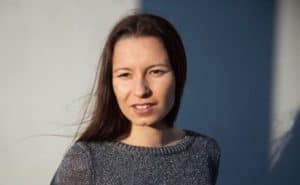
Anne Zohra Berrached (AZB): I’ve only been making films for the last six years, which isn’t a long time. Yet I’m in the competition, so I can’t say I’ve had too many difficulties so far. But I know, from other people, that women often don’t get funded so easily, especially the big sums. Producers sometimes think that women are better with smaller budgets! German TV consists mostly of crime shows, but women never get those; they only do social films. There’s an initiative for women quotas, but still. At the moment I haven’t experienced these injustices yet, and I have a good start now, but still…
7R: Do you think your choice of topic made it harder for your film to get financed? How is late abortion perceived in Germany? The film notes that 90% of German women given the same choice as Astrid come to the same decision.
AZB: The thing is, late abortion is taboo. People don’t talk about that number. It wasn’t too difficult to gather the necessary budget, because it’s a very polarising subject: some categorically refused to get involved because they were opposed to late abortion, while others were really enthusiastic about it.
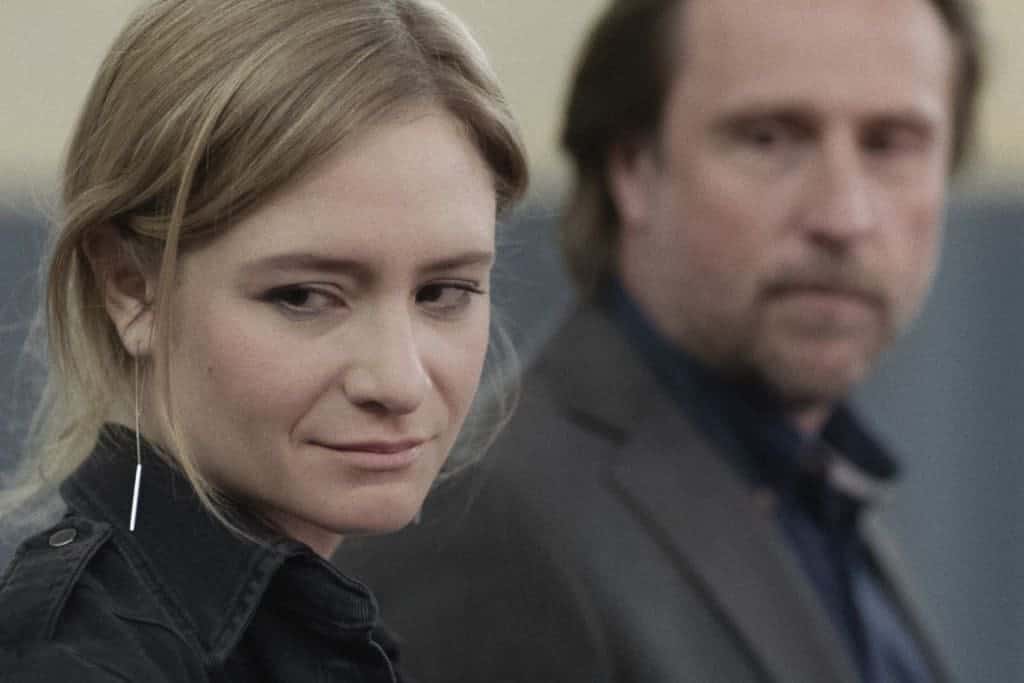
Photo by: Friede Clausz
7R: Did you get the actors you wanted? Were they hesitant or did they turn down the role because of the difficult topic?
AZB: I got the actors I wanted, but it was difficult to find the main actress. Even though they loved the script, some actors refused because they did not want to work in such an immersive way. When I want an actor, I always send both the script and a detailed explanation of the way I want to work. I want improvisation; I want their real personalities inside the scenes.
A 38-year-old actress I wanted to play the main character told me “I want to have a child, but if I work on your project, I think I would never be able to. The idea that something could happen would always be in my head, and it would be too much for me.” Others told me they’d already lost a child and didn’t want to relive that experience. I wanted my actors to really get inside that situation and state of mind. Julia [Jentsch] was brave enough to do it, even though she’s a mother with a four-year-old child.
7R: Di she refuse to do any of the scenes?
AZB: No, she did everything I asked her to do. We talked a lot about the sex scene beforehand. I told her “if [either of] you get an erection, that only means you’re inside the moment, and that’s what we want!” [laughter]
For the sex scenes, I always first talk to each actor on their own, then to the two of them together. We establish rules for what they can and can’t do. For all of my films, I talk about sex with my actors very early on, because each of my films feature very intimate sex scenes.
In this film, the sex scene was not as important to me as it was to see Julia’s entire body naked: because her character is pregnant, I wanted to show her belly. I wanted to see her body.
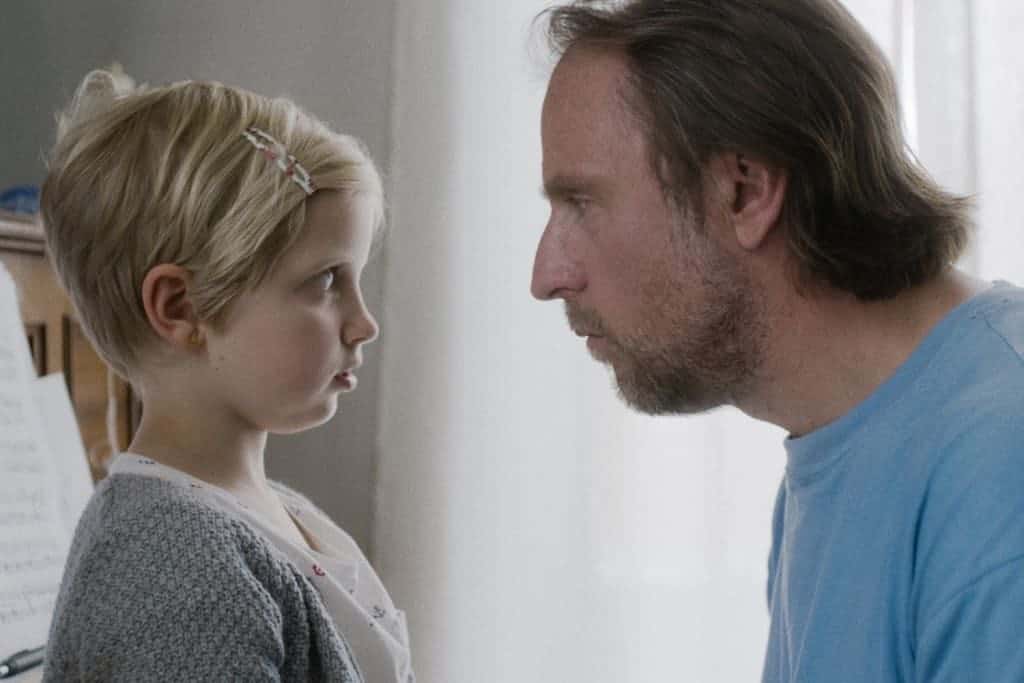
7R: How did you decide to make Julia’s character, Astrid, a stand-up comedian? Films about abortion are often sad, austere, and depressing. Because of Astrid’s and her husband Markus’ sense of humour, the film is sometimes lighthearted and funny.
AZB: I knew from the start that the film would inevitably be very sad, and I wanted something to counter-balance that. I wanted there to be light moments. As a comedian, her profession requires her to go out on stage and make people laugh. This is even more difficult than making yourself laugh if you are in an especially difficult situation.
7R: What made you decide to make a film where none of the characters are opposed to abortion, in the broadest sense?
AZB: I never thought of making it with conservative characters. Although they are, in a way, pretty conservative: they are public figures because she’s a stand-up comedian who’s often on television, but they have a classical, heteronormative family unit and a middle-to-upper class lifestyle. I wanted to show that they were wealthy: I didn’t want them to consider an abortion because they didn’t have enough money to take care of the child. I wanted my characters to have it all: a good relationship, money… Technically, they could have the child.
7R: Why did you choose non-professionals actors to play the hospital staff?
AZB: I don’t like when actors play doctors in film because they don’t have enough experience. My doctor, for example, has 20 years of experience. If I were to ask him to improvise, he would be able to use all that knowledge. The non-actors could also help my main actors.
For example, when shooting the scene where Astrid is giving birth, there was only Julia, the midwife, me, my cameraman, and the sound guy. And I said, “This is a performance. Julia is giving birth, and I won’t say anything or interrupt; the only thing I’ll say is ‘the baby’s here.’ ”
So she started with the breathing, getting more and more intense. Julia had experience because she’d given birth in the past, and the midwife helps women give birth everyday! Julia, at some point, became sick and wanted to vomit, and the nurse naturally took a bin and put it under her.
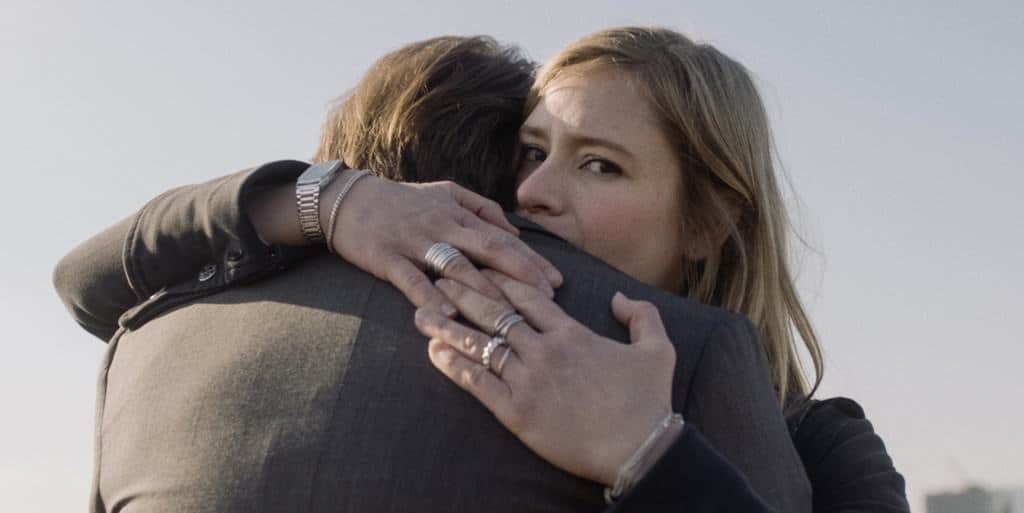
7R: Astrid looks directly at the camera three times. Why did you have her break the fourth wall?
AZB: My intention was for the spectators to be asked, “What would you do if you were in my place?” It was also a way to show Julia looking at her super-ego, at her conscience. Someone told me, [breaking the fourth wall] “two times is fine, but three times is too much!” Everyone has their own opinion, of course. My producers were against it, at the script stage and during filming. But I had to do it, and I’m glad I did!
7R: Why did you give one of the doctors in the film your surname?
AZB: I wanted all the non-professional actors to be real people with real professions. I wanted the doctor who does the abortion to be a real doctor who really does late abortions, which is not easy to find. I met so many doctors until I found one willing to do it. But he had one condition: he didn’t want to be recognisable in the film, either by name, face, or voice. So I was wondering how to do that. I couldn’t just put a black bar across his eyes like in a documentary!
Eventually, we found a solution: we decided not to show the face of many people. I promised him that as soon as we’d get the rough cut, we’d show it to him so he could decide if he’s okay with the way he appears in the film. When he watched it, I called him and he told me, “I’m still crying, my wife watched it with me and we’re both crying. You can put my name in, my face…” But it was too late! He’s coming to a screening here, and he’s even okay with me introducing him on stage!
7R: Why did he refuse to be recognisable at first?
AZB: The doctors who practice late abortions have big problems in society. This doctor in my film told me that when he opens his door, he sometimes finds raw eggs or letters insulting him, or dolls covered in blood — even once a doll with a knife planted in it.
I think it will be interesting to see how Americans or Canadians will respond to the film. They will probably have a very different reaction than European viewers.
